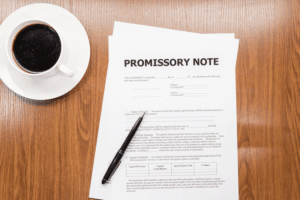
After the title of goods is transferred, the buyer then assumes responsibility for transport and liability for the goods to reach their own unloading dock. While FOB destination may seem like a good deal to any buyer as they don’t have to worry about the costs and liability of the goods in transport, it has its disadvantages, too. For example, if the seller is responsible for the transport, the buyer also loses a bit of control over timing. In addition, if the seller is unfamiliar with customs and taxes in the buyer’s port of entry, there may be additional delays and hassles.

Why Is FOB Important to Small Business Accounting?
Therefore, when the goods are being transported to the buyer, they are owned by the buyer and the buyer is responsible for the shipping costs. FOB shipping point transfers the goods to the buyer at the point the goods are loaded into the truck or the shipping point. Also, shipping point usually implies that the buyer pays for the freight charges to ship the goods. This means that as soon as the seller loads the goods onto the freight truck, they are legally owned by the buyer. If anything happens to the goods in transit, the buyer is responsible for them—not the seller.

FOB shipping point definition
Specifically, FOB indicates at which point the responsibility (and risk) of the shipped goods transfers from the seller to the buyer. FOB is part of the incoterms list published by the International Chamber of Commerce. These terms are used to standardize shipping and freight contracts and avoid lengthy negotiations by expressing contractual obligations in simple phrases. In this situation, the billing staff must be aware of the new delivery terms, so that it does not bill freight to the customer. Alternatively, FOB destination places the delivery responsibility on the seller.
- At the same time, the buyer will record the goods as inventory, even though they’re yet to physically receive them.
- Once the treadmills reach this point, the buyer assumes responsibility for them.
- Understand the legal framework, necessary documentation, and local market insights.
- Sometimes FOB is used in sales to retain commission by the outside sales representative.
- The passing of risks occurs when the goods are loaded on board at the port of shipment.
- FOB terms are typically included in shipping orders and contracts, detailing the time and place of delivery, payment terms, and which party handles freight costs and insurance.
- This means the seller bears the risk of loss, damage, or destruction during transit, which can impact their reputation and profitability.
What does FOB mean? Defining freight on board and free on board.

If any issues arise during shipping, the seller handles resolving them and may need to replace or refund the damaged goods. It is important to note that under FOB shipping point terms, when the freight has been prepaid by the seller, the buyer does not include the amount of freight when calculating cash settlement discounts on the invoice. Our Q & A section includes a worked example of FOB shipping point freight prepaid.
The buyer should record an accounts payable balance and include the treadmills in their financial records. The fact that the treadmills may take two weeks to arrive is irrelevant to this shipping agreement; the buyer already possesses ownership while the goods are in transit. The choice between FOB Origin and FOB destination depends on the specific needs of both parties.
- In that case, the buyer generally will not have to pay sales taxes on the shipping costs, since most states exempt freight charges paid directly to carriers from sales tax.
- A buyer can save money by using FOB Destination since the seller assumes costs and liability for the transportation.
- On December 30, the seller should record a sale, an account receivable, and a reduction in its inventory.
- FOB Destination means that the ownership of the products transfer from the seller to the buyer only when the goods arrive at the buyer’s location, in good condition.
- Generally, FOB is specified in a sales agreement and is accounted for under inventory costs.
CIF vs. FOB: What’s the Difference?
Due to agreed FOB shipping point terms, they’ll have no recourse to ask the seller for reimbursement. FOB is important because it has shipping, liability, and accounting implications. Understanding the nuances of FOB is paramount for businesses engaged in international trade, as it directly influences pricing, risk management, and logistical strategies.
- Under FOB Shipping Point, the seller would record the sale as soon as the goods leave the seller’s premises.
- The specific definitions vary somewhat in every country, but both contracts generally specify origin and destination information that is used to determine where liability officially begins and ends.
- In addition, if the seller is unfamiliar with customs and taxes in the buyer’s port of entry, there may be additional delays and hassles.
- Only upon delivery, at the predetermined destination, do the costs and responsibilities transfer to the buyer.
- FOB shipping point transfers the goods to the buyer at the point the goods are loaded into the truck or the shipping point.
Understanding FOB Shipping
Since the goods on the truck belong to the buyer, the buyer should pay the shipping costs. Failing to check whether a shipment is labeled as FOB shipping point or FOB destination can leave you uninsured, out of pocket, and responsible for damaged or unsellable goods. CFR or “cost and freight” means that a seller agrees to arrange export and pay for the costs of shipping—but not for insurance, so the buyer takes on the risk of losses once the goods are onboard. Because of this, misunderstanding FOB shipping point terms can be costly for buyers.
FOB shipping point vs FOB destination

Something to watch out for when you pay for the goods is paying more than you need to for the international payment. Many banks and money transfer services hide most of their profit in poor exchange rates. In a general sense, though, many buyers prefer FOB destination deals as seller takes on the risk of transport. Even if you’ve decided that FOB is the best decision for you, there are still a few more nuances.
Since the quoted price typically excludes transportation and insurance costs, the final landed cost for the buyer can often be higher than FOB Destination. This can make the seller’s offer less competitive fob shipping point and potentially impact sales volume. It is important to understand the nature of the term accounting FOB, as it will affect how the freight charges are posted to the accounting records.
